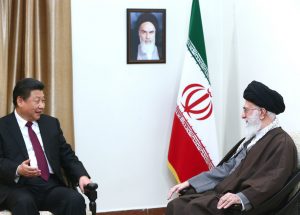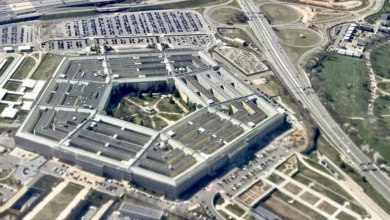
BEIJING (Reuters) – Bank of Kunlun Co, the key Chinese conduit for transactions with Iran, is set to halt handling payments from the Islamic Republic under pressure of imminent U.S. sanctions against the country, four sources familiar with the matter told Reuters.
Kunlun, the main official channel for money flows between China and Iran, has verbally informed clients that it will stop accepting yuan-denominated Iranian payments to China from Nov. 1, said the sources, who include external loan agents and business officials who trade with Iran.
The bank, controlled by the financial arm of Chinese state energy group CNPC [CNPC.UL], had already quietly suspended euro-denominated payments from Iran in late August, the four sources said, declining to be named due to the sensitivity of the matter.
Kunlun did not respond to an emailed request seeking comment. A CNPC spokesman declined comment.
It was not immediately clear how long the suspension of services will last and how Chinese businesses still selling goods or services to Iran would be able to receive payment. It was also not clear whether the bank’s services settling China’s payments for Iranian oil purchases would be affected.
China is the top buyer of Iranian oil and nearly all of its oil payments go through Kunlun. China had been buying some $1.5 billion worth of oil each month from Iran as recently as September. But state refiners have since October been scaling back oil purchases from Iran to comply with looming U.S. sanctions, oil industry sources have said.
The previously unreported moves by Kunlun highlight the mounting pressure Beijing faces as Washington reimposes sanctions targeting Iran’s financial and oil sectors from early November.
“A Kunlun account manager told us payments from Iran made after that date will be rejected and returned,” said one of the sources, an agent who serves as a go-between for the bank and corporate borrowers.
“Whether and when to resume the services depends on the international situation after the sanctions start on Nov. 5,” said another one of the sources, a businesswoman, citing a WeChat message from her trade agent recounting what she had heard from Kunlun. The agent urged her in the message to hurry up payment collections, the person said.
The new round of U.S. sanctions aims to force Tehran to stop its involvement in regional conflicts in Syria, Yemen and Iraq and halt its ballistic missile program, after President Donald Trump abandoned a 2015 deal between Iran and six world powers aimed at curbing Tehran’s nuclear plans.
China has said it is opposed to any unilateral sanctions and has defended its commercial ties with Tehran.
“IRAN CONNECT”
Kunlun was established in 2006 as a city commercial bank in Karamay, an oil-producing hub in China’s far-western Xinjiang region.
CNPC became its major shareholder in 2009 through a capital injection in a bid to expand its oil financing business. Kunlun is now 77.09 percent owned by CNPC Capital (000617.SZ), the bank’s latest annual report shows.
Early this decade, Kunlun was chosen by Beijing as its main bank to process billions of dollars in oil payments to Iran, shielding other banks from penalties under Western sanctions that ran between 2010 and 2015.
The U.S. Treasury sanctioned Kunlun in 2012 for conducting business with Iran and transferring money to an entity linked to Iran’s Revolutionary Guards.
The lender has nearly 30,000 corporate clients, largely state-owned enterprises and oil firms, its annual report said. One of its flagship products is called “Yi Lu Tong”, meaning “Iran Connect”, the bank said in its annual report.
The 2012 U.S. sanctions barred Kunlun from directly accessing the U.S. financial system. Most of the bank’s transactions are conducted in yuan and euros.
Two of the sources said Kunlun’s moves to suspend euro settlement in August and yuan starting next month were triggered by U.S. sanctions. They did not give further details.
“We were told that from Nov. 1 Kunlun would no longer receive payments from Iran. That basically means Iran will have to stop importing from China,” said an executive with an eastern China-based manufacturer that exported electronic components to Iran until recently.
China’s exports to Iran totaled $16.4 billion in 2016, the latest year for which data is available, while imports totaled $14.8 billion in 2016, down one-third from the record $24.3 billion in exports and $27.5 billion in imports posted in 2014, according to data from China’s National Statistical Bureau.
Most of what China imports from Iran is oil.
Kunlun had 317.5 billion yuan ($46 billion) in assets at the end of last year, and reported annual revenue at 5.4 billion yuan and net profits of 2.97 billion yuan.
($1 = 6.9411 Chinese yuan renminbi)




